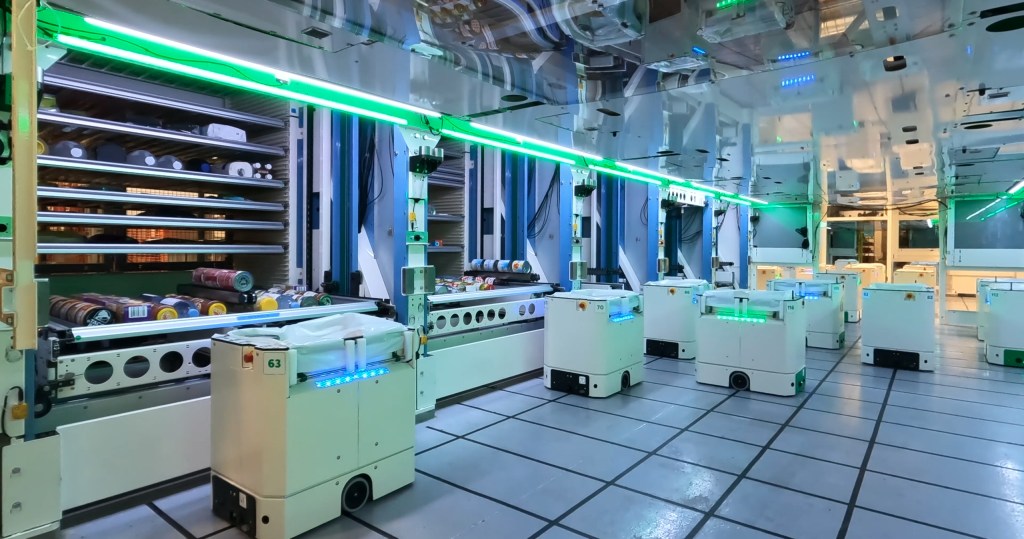
By Megan Sayles,
AFRO Business Writer,
msayles@afro.com
Businesses across the globe in a variety of industries are trying to find their place in a world with artificial intelligence.
In 2016, The White House cited a statistic from Oxford University researchers that estimated that 9 to 47 percent of jobs could be threatened by AI. However, a 2022 report from the Bureau of Labor Statistics (BLS) found this stat to be an overestimate.
“There are a number of jobs that are being either replaced or transformed by AI. AI has the ability to make people more effective, similar to the way other technologies that have been introduced have made society more effective. There are going to be new jobs created from that,” said Robert Joseph, cofounder of Team MindShift.
Joseph, who holds a Ph.D. in computer science with a minor in artificial intelligence from Carnegie Mellon University, provides educational and workforce training opportunities in AI and other technology sectors via his company.
“Do I think that some jobs are going to be obsolete or replaced by AI? Yes,” Joseph told the AFRO. “Do I think that AI is the only thing that’s going to be replacing jobs? No, I think that technology in general has shown its ability to replace jobs.”
Britannica defines artificial intelligence, or AI, as the ability of a digital computer or computer-controlled robot to perform tasks commonly associated with intelligent humans.
AI’s primary use is to automate and perform tasks better than humans. This unique ability has raised questions about how AI will disrupt industries and the labor market for years to come.
BLS predicted that AI will not cause rapid job loss in the near future and explained that, while automation could reduce the number of jobs in certain occupations, it can also create new ones. In a case where AI is used to automate tasks in an occupation, according to BLS, workers could also focus on new tasks.
That’s not to say that no jobs will be lost as a result of artificial intelligence.

According to Challenger, Gray and Christmas, a global outplacement firm, 3,967 jobs have been cut thus far in 2023 as companies pivot to AI. Still, Challenger ascribed that 46 percent of the jobs eliminated this year are due to economic or market conditions.
“AI is neither good nor bad. It’s how you use it,” said Joseph. “AI can affect a lot of people without a lot of effort. It’s the power of AI that people are worried about, not so much the technology itself.”
Joseph listed retail, banking, customer service, automobile and health care as industries most at risk for AI disruption. Some of the examples of disruption he cited included self-driving cars for trucking and taxi services, AI-enhanced radiology and robots replacing humans on assembly lines.
Joseph thinks privacy concerns, distrust of AI-enabled technology and algorithm bias serve as primary obstacles to the widespread adoption of AI. AI is fueled by data, according to Joseph. Therefore, if consumers don’t allow their data to be accessed, AI-systems cannot be adequately powered.
In terms of algorithm bias, AI’s reliance on human data to make decisions can impact the technology’s application since humans have inherent biases.
“When people talk about AI’s propensity to promote racism or other types of biases, they’re pushing off the real issue. The real issue is that society is biased,” said Joseph. “AI is using the data it receives to make decisions, and it’s putting a magnifying glass on some of the societal issues that we have.”
One company that’s using AI to advance diversity, equity and inclusion is Minwo. The economic development technology company was created by Melanie Akwule in 2020 to leverage AI technology for the benefit of Black-owned businesses.
Minwo’s product, Rialto, offers a digital platform that leverages AI to help venture capitalists, incubators and consultants find, partner and invest in Black founders. The platform provides entrepreneurs access to subject-matter-experts, resources to grow and scale their business, video conferencing and a chatbot with smart recommendations.
“The way we’re thinking about AI is that it offers new ways to tap into information and networks that have previously been inaccessible and undiscoverable by Black founders. Beyond that, sifting through the information that is available to find what’s reliable and actually beneficial is difficult without the proper support,” said Akwule. “Our approach with Rialto leans into leveraging trusted networks as the foundation and using AI to simplify information finding.”
Megan Sayles is a Report for America Corps member.
The post A time to evolve: experts discuss AI’s power to disrupt industry work appeared first on AFRO American Newspapers .











